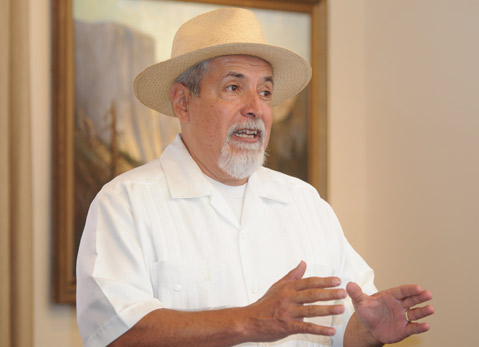Even-Year Elections Proving Elusive
Despite Support from Four Councilmembers, No Agreement Could Be Reached

Even though four Santa Barbara city councilmembers say they support a shift to even-year elections, chances are good there won’t be a ballot measure this fall asking voters what they think. That’s in part because one person — Sebastian Aldana — doesn’t support even-year elections. It’s also because the four on the council who purport to agree such a change is needed to increase voter turnout are bitterly divided over whether the new elections rules should take effect in 2016 or 2020.
Aldana is one of the four plaintiffs to successfully sue City Hall to adopt district elections. Included in the deal City Council hammered out to settle that lawsuit was language specifying that anyone elected to either of the two newly created Latino majority voting districts would serve a four-year term. The Democratic Party and CAUSE (Central Coast Alliance United for a Sustainable Economy) have been pushing to enact even-year elections as soon as possible — in 2016 — which could be achieved only by shaving a year off the terms of two councilmembers and the mayor. And that flies in the face of the district elections settlement.
City Attorney Ariel Calonne informed the council Tuesday that there was no agreement among the plaintiffs and that the attorney who represented them in the district elections lawsuit — Barry Cappello — is no longer engaged. Calonne warned against any change in election protocol that violated the terms of the deal, adding that City Hall would be on the hook for attorneys’ fees as well. Aldana, who is thinking of running for the Eastside district seat, made it clear he wanted odd-year elections retained. Even-year elections, he argued, gave too much power to political parties, and issues of local concern got “drowned out” amid debates of statewide and national concern.
Given Calonne’s advice, Mayor Helene Schneider pushed an alternate plan to elect all city seats in even years as of 2020; this would be achieved by adding rather than subtracting years to council terms — for two election cycles. This transition proved too lengthy, however, for Democratic Party leader Daraka Larimore-Hall, who scolded “self-serving elected officials” for looking out for their narrow interests at the expense of increased voter participation.
Councilmember Dale Francisco — chair of the Republican Central Committee — said he found it “charming to hear about the virtues of democracy from the chairman of the county Democratic Party.” The election year shift, he insisted, was an obvious power grab by Democrats hoping to augment their numbers by tapping into younger, liberal-minded residents who typically vote more in even-year races.
Joining Francisco in opposition to even-year elections were councilmembers Randy Rowse and Frank Hotchkiss. The four who supported the change all happen to be registered Democrats, but represent rival factions. No agreement could be reached.



